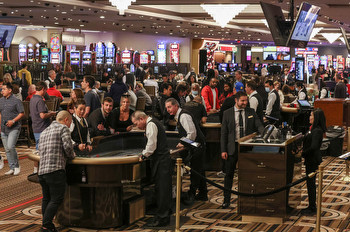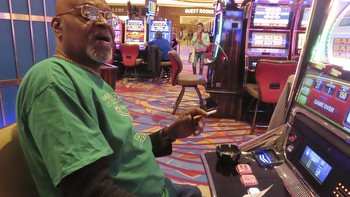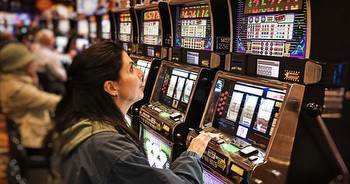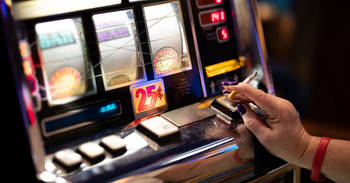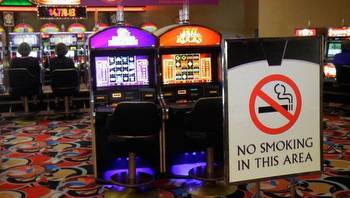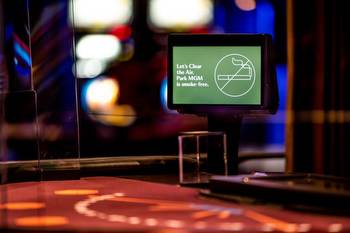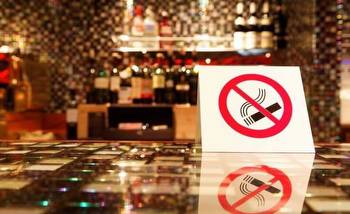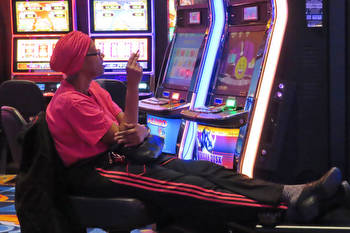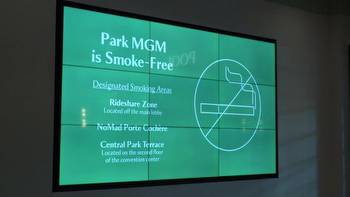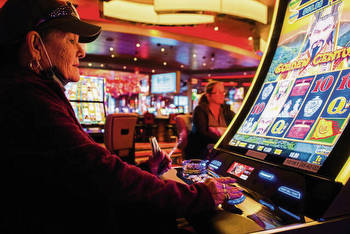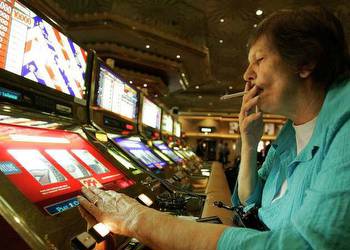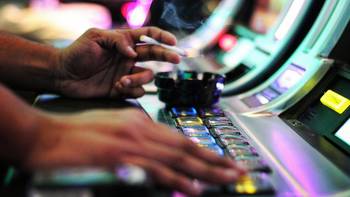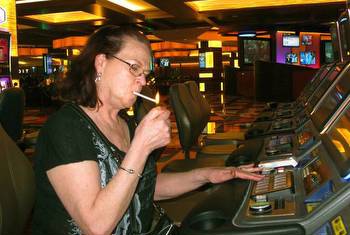Reasons Why Banning Smoking in Casinos Should Be Mandatory

Is it finally time for casinos to have a sweeping ban on smoking throughout the country? While smoky casinos have been a staple of Las Vegas for decades, health-conscious gamblers are seeking out smoke-free facilities in recent years. This is one reason why many of these gamblers are turning towards online casinos.
Additionally, there have been governments, states and some highly reputable casinos that have outright banned smoking in casinos.
In 2020, MGM Resorts made a drastic move by banning smoking in one of their Las Vegas Strip casinos. The Park MGM, formerly the Monte Carlo, implemented a ban despite Nevada law allowing smoking. The company saw the pandemic as an opportunity to try something that hasn’t been done before.
States such as California, Colorado, and Ohio have all passed legislation to prohibit smoking in indoor public places. In Canada, smoking is banned across the country in every province, including the Northwest Territories and Nunavut. Therefore, smoking in casinos is banned, with properties setting up designated outdoor smoking areas.
There are pros and cons to each side of the coin. You will find some government officials and smokers advocate for keeping smoking in casinos.
Like all political debates, there are going to be people on the opposite side. For the purposes of this report, we are assessing the pros of smoking bans in casinos.
Modern casinos invest millions in state-of-the-art ventilation systems. Comparing the air quality of Bugsy Siegel’s El Cortez built in the 1940s to the newest casino in Las Vegas, Resorts World, is not a good comparison. However, there are hundreds of casinos in the US where escaping the smell of tobacco smoke is impossible.
Even in modern casinos, employees will breathe in tobacco smoke, regardless of how efficient the ventilation system is on the property. Don’t tell table game dealers that the filtration system in the ceilings is helping them. They have a small fan on the table, which is marginally effective at best.
Unfortunately, there is no simple solution for employees.
If they are in a casino where smoking is allowed, there will be exposure regardless of the mitigation steps that are taken by companies. In 2009, the National Institute for Occupational Safety and Health (NIOSH), performed a study on the impact of secondhand smoke on employees.
The NIOSH visited Caesars Palace, Paris, and Bally’s. The researchers collected a urine sample from a sample of employees who are non-smokers before and after an eight-hour shift.
Casino dealers were found to have an elevated level of NNAL (cigarette carcinogen) in their urine. Additionally, dealers had more respiratory symptoms than administration and engineering employees, but all workers in the casino were impacted.
Moreover, the study concluded that air samples detected secondhand smoke carcinogens in the air at the three casinos. The findings would likely be similar at any casino that offers smoking to its guests.
Workplace safety should be of the utmost importance for any employer. Eliminating smoking in casinos would be a positive for fulfilling the employer’s obligation.
While there are supporters of keeping smoking in Atlantic City casinos, such as Atlantic City Casino Union leader calling a smoking ban a suicide pact, employees are pleading their case in front of state Assembly committees to ban smoking.
In March, several Atlantic City casino workers testified in favor of a bill that would ban smoking. The state has an indoor smoking law, but casinos were excluded from the 2006 public smoking ban.
Two Atlantic City casino employees shared their experience after being diagnosed with cancer. Tammy Brady began her career as a dealer at 18 years of age. Now, 55, she has been diagnosed with breast cancer.
“While I’m not sure we will ever know the exact cause of my illness, I can’t help but wonder if it would have happened if the casinos hadn’t forced me to work in second-hand smoke,” said the Borgata dealer.
Holly Diebler, a craps dealer at the Tropicana with throat cancer, added:
“I don’t even know how long I’m going to live. I love my job; I don’t want to leave it. But all my oncologists have told me this is a life-and-death choice”.
For the health and safety of casino workers, smoking in casinos should come to an end. Also, prospective employees that might be considering a casino career might look elsewhere because of the smoky environment. Removing smoking will attract the best possible candidates.
The majority of restaurants in North America had a smoking and non-smoking section through the 1990s. In the early 2000s, there was an effort to eliminate smoking in restaurants.
Now, casinos are taking a page from the restaurant playbook from decades ago. Many casinos that allow smoking have non-smoking sections. The non-smoking sections on the casino floor primarily consist of slot machines.
If you want to play other games, oftentimes there isn’t an option for a smoke-free section. The benefit of gambling in these sections is that other players won’t be blowing smoke in your face. The smell of cigarette smoke is reduced in most instances as well.
Additionally, the University of Waterloo discovered that casinos in Ontario, Canada, and New York were 45 percent to 64 percent as polluted in the smoke-free areas.
This is described as “high” levels of pollution. The only casinos with “good” air quality were completely smoke-free casinos in Ontario. For the safety of employees and guests, the only full-proof approach is to ban smoking in casinos.
Why punish the majority for an act only a minority wants to partake in?
In 1990, roughly 50 percent of the population in the United States smoked cigarettes. That number dropped to 20.9 percent in 2005, and then 11.5 percent in 2021.
Nevertheless, it doesn’t take into account foreign visitors to US casinos. For instance, in China, 25.6 percent of residents smoked tobacco. There is a market for smoking in casinos, but the figures percentage of people continues to drop year over year.
Casino companies have introduced theme-based real money slots and other games focusing on capturing young gamblers. However, if they want a younger audience, eliminating smoking would probably help.
If the smoking rates continue to fall, which we expect, in 20 years or even sooner, smoking in casinos might be a distant memory like smoking on planes. Nevertheless, casinos have to start brainstorming more ways to bring in young gamblers now instead of later. Banning smoking in casinos appears like a win for everybody.
As we mentioned earlier, MGM Resorts took a big gamble by opening the first-ever non-smoking casino on the Las Vegas Strip. As well as a smoke-free casino at Park MGM, all of the rooms in the hotel and at the boutique-style hotel, NoMad, are free of tobacco smoke.
If Park MGM was doing poorly, MGM Resorts would have quickly lifted the smoking ban. They are not in the business of losing money. The rule was implemented as an experiment for when the casinos reopened following the COVID-19 lockdown.
Last year, casino gaming consultants C3 Gaming embarked on a research study to determine the financial impact of removing smoking from casinos. The 30-page report concluded that smoking bans are no longer a deterrent to casino revenue.
The study examined smoking and non-smoking casinos across New Jersey, Rhode Island, and Pennsylvania since the pandemic hit in 2020 to 2022. In its conclusion, the study found casinos that prohibited smoking did not experience any drop in revenue to nearby competitors that allowed smoking.
“non-smoking properties appear to be performing better than their counterparts that continue to allow smoking”.
Lastly, tribal casino executives were interviewed as part of the study and indicated that 157 tribes were able to halt smoking in their casinos without harming revenue.
This is a considerable change from the 2000s when jurisdictions first began to ban smoking in casinos. Initially, casino revenue was harmed by the smoking ban, but they have recovered since then. In 2023, there has been a substantial cultural shift in how smoking is viewed.
Someone has to clean and maintain these vast casino properties. Some of the mega-resorts on the Las Vegas Strip could have their own area code. It is not cheap to have cleaning crews on the pay roll in large casinos.
Cigarettes, cigars, and tobacco products can cause a mess to properties. Along with cleaning up discarded ashtrays, ash from tobacco products can get on machines, tables, the floor, and a variety of other surfaces.
It has to be deep cleaned or the ashes can cause even more damage. Additionally, smoke stains walls and fixtures. These surfaces will require more upkeep and cleaning than in non-smoking casinos.
Labor costs and the costs for cleaning supplies would be reduced without having to clean up and repair damage caused by smoking. If the vast majority of the public isn’t interested in smoking, it makes sense to stop wasting business costs on a small segment of gamblers.
Fortunately, online casinos provide players with an opportunity to create their own personal gambling environment.
If you want to gamble without breathing in tobacco smoke, open your favorite casino apps and play wherever you want.
There isn’t a solution to make everyone happy. Smokers will be bothered by casinos and jurisdictions banning smoking in casinos. Whereas, the non-smokers will be thrilled.
One solution to this scenario is to play at online gambling sites rather than land-based establishments. As a top pick for an online casino, we recommend checking out what BetUS has to offer for gamblers of all bankroll sizes.
With a full menu of casino games, including hundreds of slots, table games, and live dealers, you can get the complete casino experience in the palm of your hand. You will never be bored with their expansive list of casino games.
It isn’t difficult to get started, with a number of deposit methods, including a credit card, bank wire, and cryptocurrency. Currently, BetUS is offering up to a free casino bonus of up to $3,000 at 150%. Get even more with a crypto deposit, with up to $5,000 in free casino credits on your first deposit.







.jpg)
